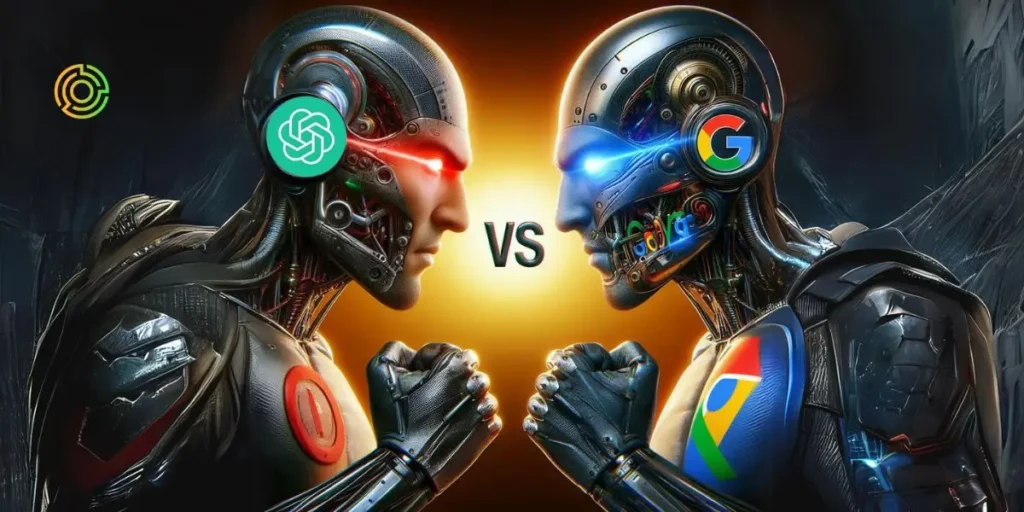The buzz surrounding OpenAI’s highly anticipated search engine, ChatGPT Search, is reaching its crescendo. According to reports from Reuters, ChatGPT Search is poised to make its debut on Monday, May 13th, in what is being hailed as one of the most significant announcements of the year for the company. This launch comes just one day before Google I/O 2024, setting the stage for a head-to-head showdown between OpenAI and the tech giant, Google.
Strategic Timing: A Bold Move by OpenAI
The decision by OpenAI to unveil ChatGPT Search on this specific date is far from coincidental; it represents a strategic move aimed at challenging Google’s dominance in the search engine market. With Google currently commanding a staggering 90% market share, the road ahead for ChatGPT Search is undoubtedly fraught with challenges as it seeks to carve out its niche amidst Google’s array of AI-based search offerings.
We’ll be streaming live on https://t.co/OcO6MLUYGH at 10AM PT Monday, May 13 to demo some ChatGPT and GPT-4 updates.
— OpenAI (@OpenAI) May 10, 2024
Revolutionizing Search with Artificial Intelligence
At its core, OpenAI’s ambition with ChatGPT Search is nothing short of revolutionary: to replace Google’s ubiquitous search engine with its own AI-powered alternative. By leveraging its cutting-edge language model, ChatGPT, OpenAI aims to create a conversational search experience that delivers real, tangible results to users.
Unlike traditional search engines, where algorithms dictate the relevance of search results, ChatGPT Search takes a different approach. Instead of relying solely on predefined databases, it scours the vast expanse of the internet in real-time, using natural language processing to understand user queries and provide tailored responses.
The Promise of Personalized Search
Imagine craving a dish of lasagna but having only a handful of ingredients in your pantry. With ChatGPT Search, you can engage in a conversation with the search engine, conveying your culinary desires and ingredient constraints. In response, the AI will sift through a myriad of recipes available online, curating a selection that aligns with your specific requirements. This level of contextual understanding and personalized search capabilities sets ChatGPT Search apart from its competitors, offering users a truly bespoke search experience.
Integrating Advanced Features
According to sources cited by Bloomberg, ChatGPT Search will seamlessly integrate into the existing ChatGPT platform, offering users advanced functionalities such as citation generation. This signals OpenAI’s commitment to enhancing the accuracy and utility of its chatbot responses, addressing user feedback and iterating upon its initial offerings.
Additionally, reports from The Information suggest that ChatGPT Search may leverage technology powered by Bing, hinting at a potential collaboration that could significantly expand its search capabilities. By tapping into the expertise of industry leaders and fostering strategic partnerships, OpenAI is poised to deliver a search engine that not only rivals but surpasses existing standards of functionality and efficiency.
A Battle of Titans: OpenAI vs. Google
The impending launch of ChatGPT Search has not gone unnoticed by Google, with Prabhakar Raghavan, Google’s Head of Search, acknowledging the competitive threat posed by OpenAI’s initiatives. While Google remains confident in its historical reliability and user trust, the emergence of alternative players such as OpenAI and Perplexity underscores the shifting landscape of AI-based search technologies.
As anticipation mounts within the industry, stakeholders eagerly await the unveiling of ChatGPT Search and its potential to disrupt the status quo. OpenAI’s ability to introduce a product that not only challenges but surpasses the functionality and efficiency of Google’s offerings has the potential to redefine user expectations and set new benchmarks for search technology.
Conclusion
In the rapidly evolving landscape of AI-driven search engines, OpenAI’s ChatGPT Search emerges as a formidable contender, poised to revolutionize the way we interact with online information. By harnessing the power of artificial intelligence and natural language processing, ChatGPT Search promises to deliver personalized, contextually relevant search results, setting a new standard for search engine functionality.
As the battle for supremacy in the search engine market intensifies, all eyes are on OpenAI and its flagship product, ChatGPT Search. With its launch just around the corner, the stage is set for a showdown that could reshape the future of online search.
FAQs
How does ChatGPT Search differ from traditional search engines like Google?
ChatGPT Search leverages artificial intelligence to understand user queries in context, delivering personalized and relevant search results through conversational interactions.
Will ChatGPT Search replace Google entirely?
While OpenAI aims for ChatGPT Search to be a formidable competitor to Google, the extent of its adoption and impact on Google’s market dominance remains to be seen.
What advanced features can users expect from ChatGPT Search?
ChatGPT Search is expected to offer advanced functionalities such as quote generation and enhanced contextual understanding, providing users with more accurate and useful responses.
How does OpenAI plan to address user feedback and improve ChatGPT Search over time?
OpenAI is committed to continuously refining ChatGPT Search based on user feedback, with a focus on enhancing accuracy, relevance, and user experience.
Are there any potential collaborations in the pipeline for ChatGPT Search?
Reports suggest a possible collaboration between OpenAI and Bing, which could significantly expand the search capabilities of ChatGPT Search and further challenge Google’s dominance in the market.
Twitter Linkedin Facebook Telegram Instagram Google News Amazon Store
